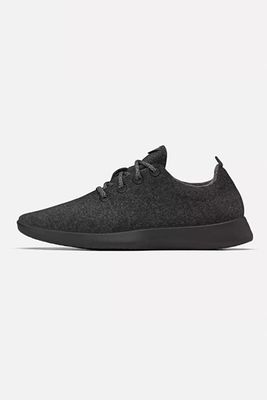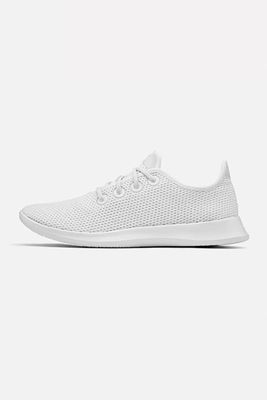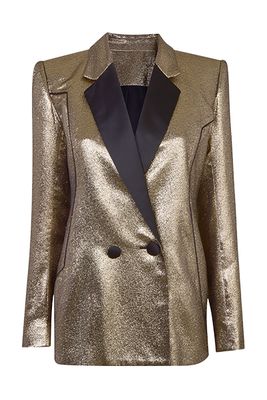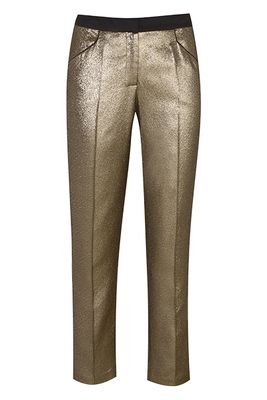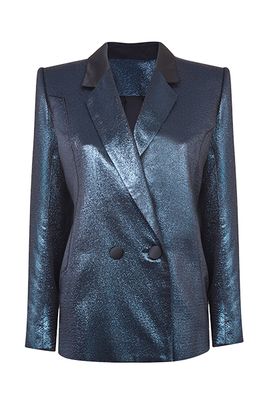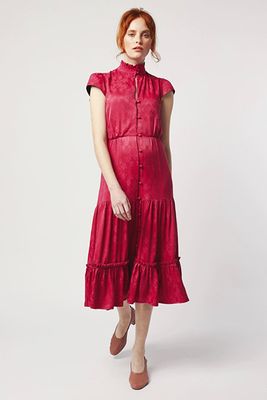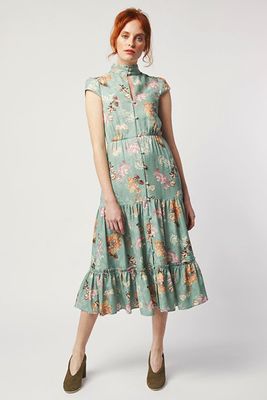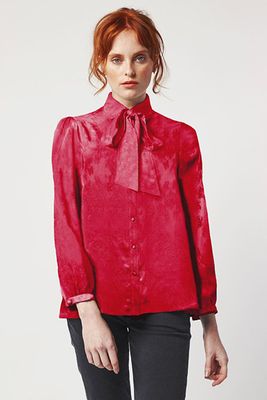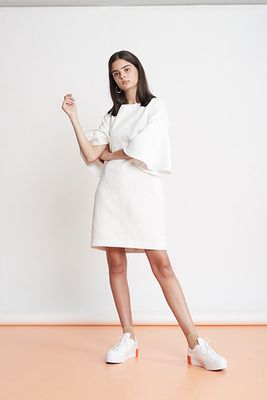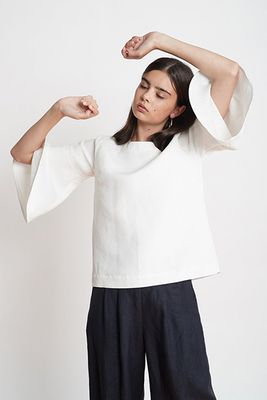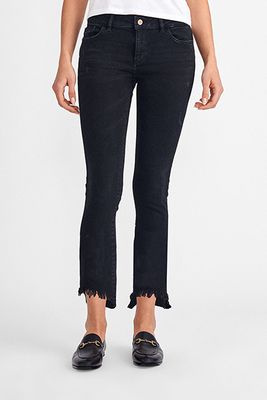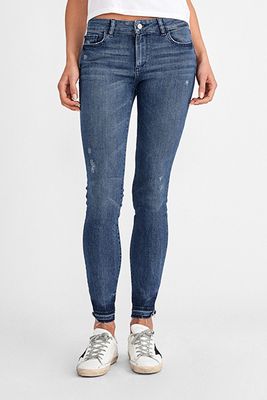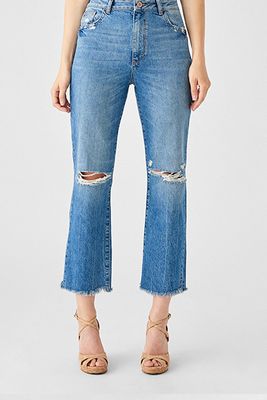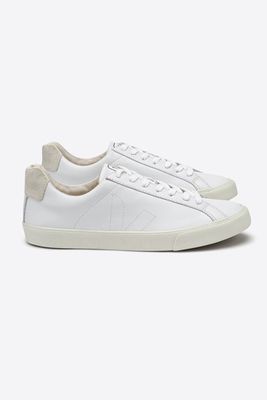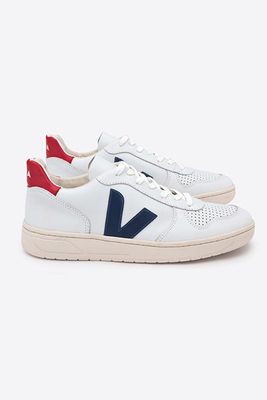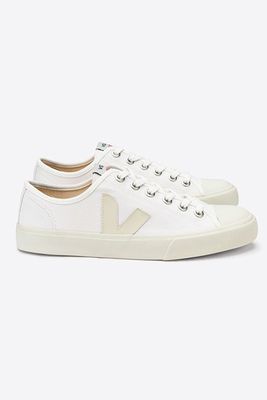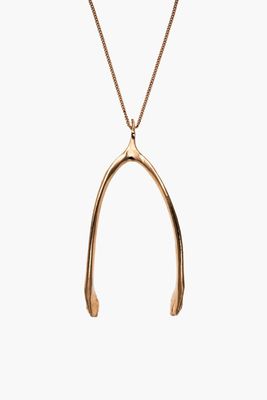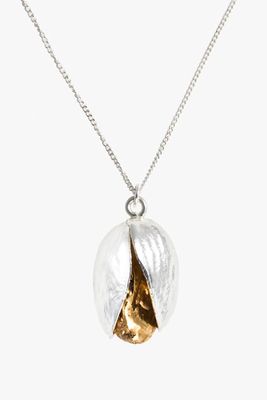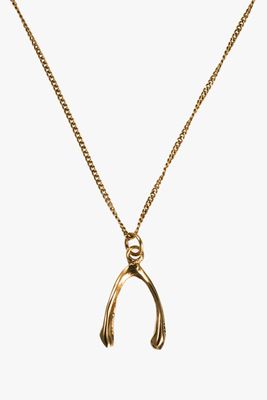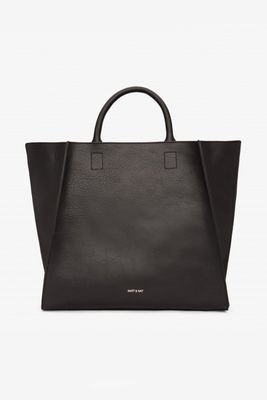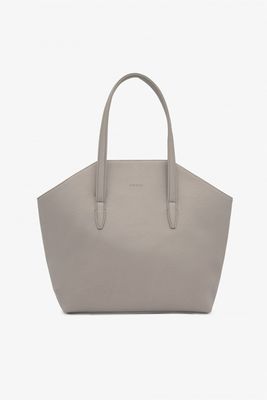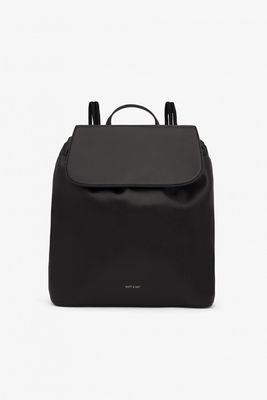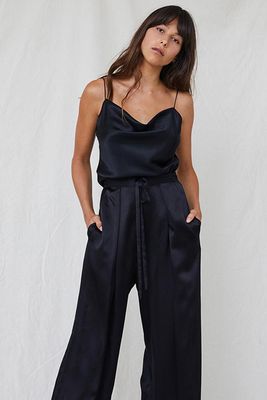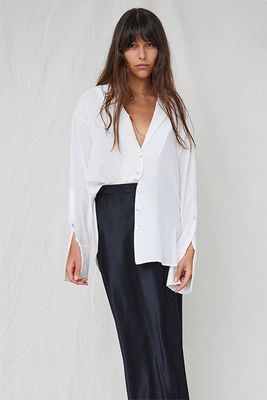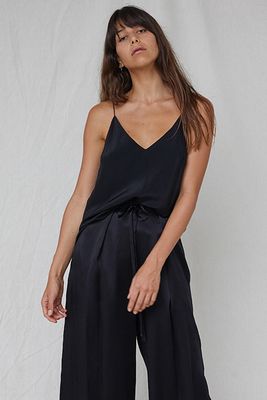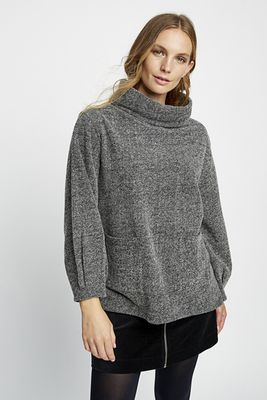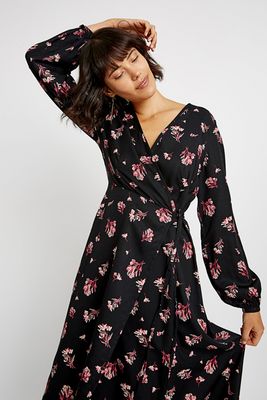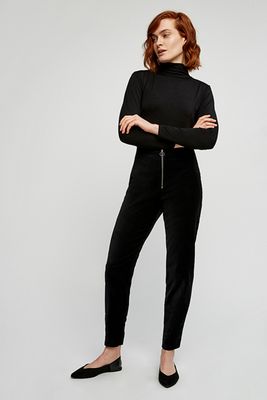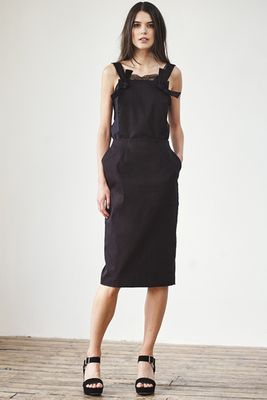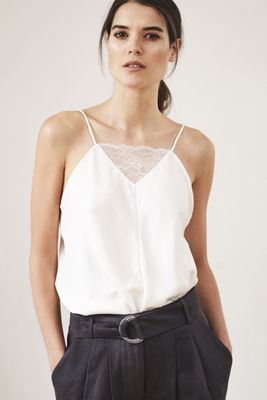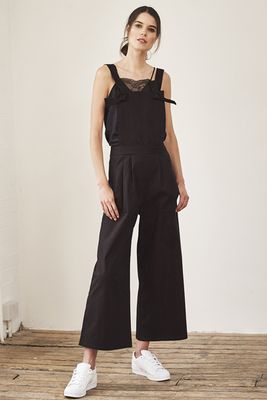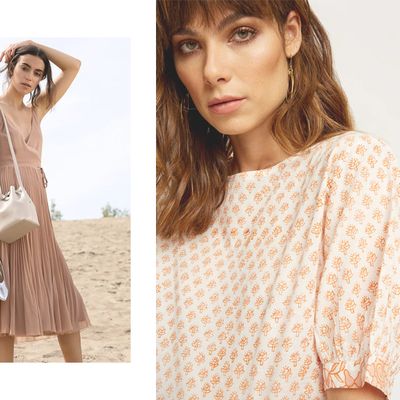
Sustainable Fashion Brands To Know
A report published in Nov 2017 claimed the disposable way we make and consume fashion means the industry is now responsible for 1.2 billion tonnes of greenhouse emissions yearly. According to the Guardian, this is larger than that of international flights and shipping combined.
And that’s not all. The facts only get more scary:
- Less than 1% of material used to make clothing is recycled into new clothing
- A truckload of clothing is wasted every second across the world
- It takes an average of 7,000 litres of water to produce one pair of jeans (that’s equivalent to the amount you drink in five to six years)
- In the US, 10.5m tonnes of clothing are sent to landfill each year
- The volume of water consumed by apparel production each year is currently around 79 billion cubic meters, or 32m Olympic swimming pools
- It’s estimated that close to 20% of the world’s water pollution comes from the dyeing and treatment of these man-made textiles
What’s actually going wrong?
There are multiple factors. The first are environmental; 99% of the cotton used by the fast fashion industry is non-organic, which requires huge volumes of water to grow. Then, because disposable incomes have only risen in the past century, the ‘make and mend’ attitude of the past has dissipated, leaving us with vast amounts of wasted purchases that are then non-recyclable; according to the Environmental Protection Agency (EPA), 84% of unwanted clothes in the United States in 2012 went into either a landfill or an incinerator, whilst the Global Fashion Agenda and Boston Consulting Group predict that overall apparel consumption will have risen by 63% in 2030 –that’s the equivalent to 500 billion more T-shirts.
And the other factors?
Are humanistic. Much of the fast fashion we consume is made by employees in disadvantaged countries, where factory workers are payed very little (according to one study, 16,000 Bangladeshi workers’ wages are equivalent to 1 US CEO’s annual salary). A survey of 219 fashion brands found that only 12% could demonstrate any action at all towards paying garment workers above the legal minimum wage, whilst tragedies like the Rana Plaza building collapse in 2013, killing 1138 factory workers and injuring another 2500, confirm the unsafe and unsanitary conditions employees of the biggest brands are forced to work in.
How can I help?
First, check out FashionRevolution.org, the movement encouraging brands to be more responsible, provide dignified working conditions, conserve the environment and repair, reuse, recycle and upcycle. From signing petitions to lobbying labels, they have endless ways you can get involved.
Secondly, you can start shopping responsibly. Here are just some of the brands making sustainability a priority…
All Birds
Sports trainers don’t have to come from state-side conglomerates – All Birds is the new name putting a sustainable spin on your athleisure. The shoes are crafted from wool, as opposed to more commonly used synthetic fabrics, and the brand is registered as B Corp, a credit that confirms their eco and social responsibility.
Visit AllBirds.co.uk
Bożena Jankowska
Sustainable fashion doesn’t mean all cheese cloth shirts and hemp layering. Bozena Jankowska is committed to reducing the label’s environmental footprint by incorporating sustainable fabrics into collections where possible, working with socially responsible manufacturers and avoiding unnecessary waste by producing pieces only when they are wanted. The label has also made it their long-term mission to incorporate ever more innovative and sustainable fabrics into their future collections.
Visit BozenaJankowska.com
Dagny London
We’re more than happy to support a homegrown label putting sustainability first, so Dagny London is high on our radar right now. The brand sources the most sustainable, luxurious fabrics and trims, and partners with an ethical, women-owned and operated factory, which means their ethical side is twofold. Win win, we say.
Visit DagnyLondon.com
Twenty Seven Names
Romantic, girly and cool, it’s no surprise Twenty Seven Names hails from New Zealand. Named in homage to the 27 individuals who helped the founders and designers get the brand off the ground, they apply a sustainable approach to all they do, saying ‘We try to make choices that support women, help local and small businesses, and cause the least harm to the environment. From the casting of our fashion week shows, to the language we use in marketing; from the buttons on our coats to the stitching on our dresses – we know we have an impact on how people feel and the way they live, and we try to make sure we’re making things better, not worse.’
Visit TwentySevenNames.co.nz
DL1961
The luxe denim brand with a difference, DL1961 is the darling of the fashion world who still manages to put sustainability first. Indigo dyes for the jeans are created from plants, and the Pakistan-based factory is entirely solar panelled to reduce the brand’s waste and emissions. Using a special Environmental Impact Measurement, the label tracks every piece created to monitor its water consumption and dye usage – put simply, each pair of the brand’s jeans is made using just 10 litres of water, with 98% of that subsequently recycled.
Visit DL1961.com
Veja
Veja are undeniably the world’s coolest environmentally friendly shoes. Born from a visit to a Chinese factory on behalf of a French fashion brand, the founders were shocked to see the workers’ living conditions, which featured 35 men sleeping in five-story bunkbeds in a 25m square space, with a central hole serving as both a shower and toilet. The brand claims that when you buy sneakers from a large brand, 70% of that cost goes towards advertising, whilst only 30% is spent on the production of the shoes themselves, so by cutting advertising costs entirely, Veja can prioritise spending on fair trade materials.
Visit Veja-Store.com
Barocco
British brand Barocco is a Made in England label that uses sourced recycled bronze, silvers and golds to craft pieces in foundries and workshops across the UK.
Visit Barocco.com
Matt & Nat
Not the names of the founders, rather Matt & Nat stands for ‘material’ and ‘nature’. The brand uses exclusively recycled materials, including nylon, cardboard, rubber, cork and bicycle tires, whilst all bag linings are crafted from recycled plastic bottles.
Visit MattandNat.com
Natalija
Natalija is the Aussie label committed to sustainability – all designs are crafted in Sydney with a manufacturer accredited with Ethical Clothing Australia, which ensures best practice across both environmental and humanistic responsibility. They say: “Our garments are made from the finest silk fabrics that we have traced from the most ethical sources available and ensured that our silks are derived from sustainable cultivation processes. While the fibre production itself is in China, no harsh chemicals are used to dye the silk to achieve their beautiful colours.”
Visit NatalijaTheLabel.com.au
People Tree
People Tree has spent 25 years partnering with fair trade producers, garment workers, artisans and farmers in the developing world to produce ethical and eco fashion collections. The brand developed the first integrated supply chain for organic cotton from farm to final product, achieving a Global Organic Textile Standard certification on a supply chain – the first ever brand to do so.
P.i.C Style
PIC, or Partners in Crime, sources fabrics locally, uses sustainable and organic materials and is never mass produced. The brand's pieces are also designed with consumer waste in mind - the perfect capsule wardrobe, simple monochrome pieces are intended to be long-lasting foundations that dispel your need to keep snapping up fast fashion.
Visit Pic-Style.com
DISCLAIMER: We endeavour to always credit the correct original source of every image we use. If you think a credit may be incorrect, please contact us at info@sheerluxe.com.


